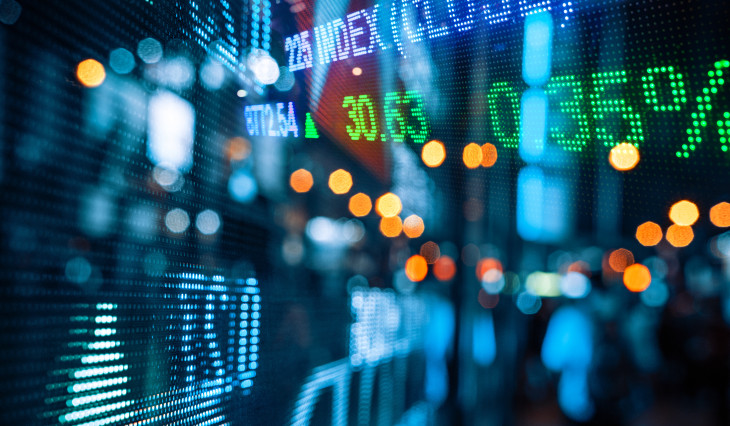Is It Time to Buy Stocks?
The COVID-19 pandemic is still wreaking havoc in 200+ countries. The mainstream media are incessantly churning out dramatic reports. These paint the bleakest of prospects for the world economy. It is clear that the global finance system has suffered a blow.
It is also obvious that any predictions presented as scientific are highly dubious. Why? Due to the absence of any comparable precedent. Traders and investors are eager to know the future. Should stocks be bought or sold, given the latest plunge? Is the value likely to depreciate further?

Observable Emotional Effects
So far, the disaster has caused many stocks to nosedive. This clearly expressed an emotional reaction to shocking news. These days, shareholders are confined to their homes like everyone else. Under the constant barrage of negative coverage, it is easy to begin short-selling.
However, such behavior is not based on any convincing rationale. The incredible turbulence we see is caused by panic. In the long-term, stock exchange reverts to its average. Hence, those who sell assets now risk missing opportunities in the future.
Meanwhile, some investors are finding solace in old-school advice. One such scheme is to make sure the proportion of stocks in your portfolio equals the amount that is 100 less than your age. Naturally, there is no science to back such conclusions, but it may serve a good purpose. In times of uncertainty, people need patterns to stay sane. Conservative behavior is better than chaotic trades.
Is It All That Bad?
In this severe period, there is no way to tell the future. The market is obviously cheaper than at the end of 2019. Hence, traders buying stock on a Forex platform can be sure they are buying low. However, what scenario will unfold from here is a mystery. For example, here are a few key stats concerning the C.A.P.E. ratio for the S&P 500.
The indicator shows the proportion between the actual stock price and the 10-year average of real earnings. In January 2024, it stood at 31. This was the third-highest level ever. Today, it stands at 23. Still, it is not the worst result.
In the late 19th century, C.A.P.E hit 17. This means 23 was seen before. Back then, the market was not seen as cheap, and the result was interpreted as moderately positive.
Ten-year Perspective
According to the Guardian, the market may see unfavorable conditions for as many as ten years. This is a possible consequence of emotional trauma caused by the economy shutdowns. For instance, the effects of the Great Depression on collective consciousness lingered for many years. Traders may show higher risk aversion, and stocks will be low-priced.
The Key Complication
If you consider exiting the market, you may not have enough time. Generally, prices are likely to resume growing before the virus is officially contained. There will still be volatility a few months from now. Impulsive entering and exiting entails fees and missed opportunities. Here are a few suggestions many experts agree with:
- This is not the time to sell all of your stocks.
- The market could dip further.
- This year, we are likely to see extreme volatility in stocks.
- Usually, people who incur the biggest losses in crisis are those who panic and exit the market.
David Rae advises against constant anxious checking of market indicators. The Forbes contributor notes that investments should be just fine “without your looking at them twenty times per day.” Hence, keep calm and think over your strategy well.
Consider the following hypothetical scenario. In 1999, you opted for investing in the S&P 500 Index for a 20-year period. Without any additional moves, you gained 6.06% annually. Now imagine you were moving in and out repeatedly. What would have happened?
With 10 best days missed, the annual returns would constitute merely 2.44%. With 20 days missed, the percentage would be meager – 0.08%. With 30 days, it would become negative. In conclusion, if you had left the investment alone, you would have collected a tidy, albeit moderate, profit. Impulsive behavior, on the other hand, may result in outright loss.
What This All Means
Unfortunately for investors and Forex trading experts, the long-term effects of the pandemic on the market may not be forecasted with precision. Since COVID-19 is unprecedented in many ways, any predictions are speculative in nature. The stocks may stay low for years to come, but eventually, they will grow.
Any panic behavior should be avoided, as emotions impair judgment. Hence, if you are willing to sell, think twice. At the same time, buying stocks through an online broker could prove profitable. However, do not expect to capitalize on an uptrend too soon.
Related Posts:
- 7 Pros And Cons Of Buying Patio Furniture Online in 2024
- 4 Pros and Cons of Buying Expensive Things with…
- How Sex Doll Vendors Have Been ‘Essential’ During…
- Online Gambling Tips For Novices Turning To Virtual…
- 16 Innovations In Education That Emerged During The Pandemic
- 9 Precautions to Take While Eating in a Restaurant…







